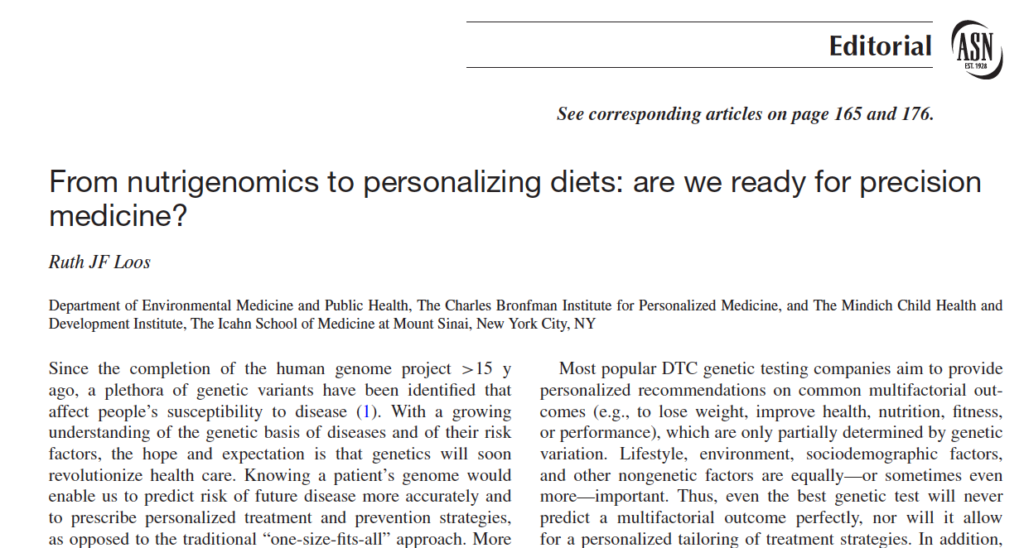In the most recent January edition of the highly regarded American Journal of Clinical Nutrition, there is an interesting editorial by
I would argue that we are very much ready, and have been for some time, we are in fact well down the precision (personalized) medicine road. But

DTC TESTS….
- often test only a few gene variants but make inflated claims.
- make diet, lifestyle and supplement recommendations based on the result of a single gene variant, even though by themselves these gene variants do not predict disease risk.
- exclude the health practitioner (a very bad idea).
- take genetics out of context when giving diet and lifestyle advice. They intepret only the genetic result, but ignore who the person is; their diet, exercise, stress, medical and family history, and their social environment.
- suggest that these gene variants cause disease when in most cases the scientific literature has only shown an association with the disease condition.
Dr Loos states “Given the importance of nongenetic factors (lifestyle, environment, demographics, etc.) in many of the health outcomes covered by the DTC companies, precision medicine that focuses solely on people’s genome is doomed to fail.” I could not agree with her more.
So what do we do differently at 3X4?
- Gene variants work not alone but together in pathways.
- We apply
a strict criteria of scientific validity and clinical/health utility in choosing gene variants for a genetic test. - Genes chosen should have a plausible and functional effect on a biochemical or metabolic pathway.
- And importantly, a nutrigenetic test needs to be administered by an expert, educated nutrigenomics health practitioner. A health professional who has improved their knowledge base and engaged in mentorship and continuing education.
We can (AND DO) do things better!
Yael

